What is the Cost of Solar Batteries?
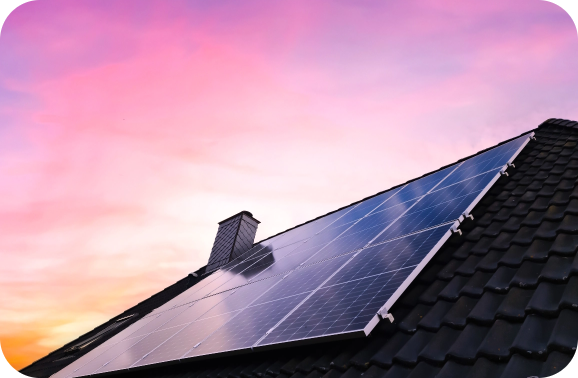
The cost of solar batteries is a big factor that homeowners need to consider when installing solar panels in their homes. If you’ve been researching home solar tech, you’ve probably come across the importance of solar batteries to the overall system and how they offer you more flexibility and energy independence, giving you the ability to store the excess energy your solar panels produce and reap the benefits of your solar panels even at night or during darker times of the year. However, some homeowners may pause before considering solar batteries out of concern over the additional expense. Let’s take a look at the different factors that influence solar battery cost and answer whether or not they are worth the investment.
How Do Solar Batteries Work?
A solar battery is a large-scale rechargeable battery — similar in concept to the rechargeable batteries in devices all around you — that stores the energy generated by your home’s solar panels. Alone, a solar panel array is only generating electricity while the sun is shining on it. If you have solar panels but no battery, you can only make use of that energy while it is actively being generated, so you won’t be drawing any power from the solar panels when it’s dark outside. Additionally, without a battery, you’ll miss out on the full amount of energy your panels generate. By adding a solar battery to your setup, you gain the ability to store the excess energy that you generate and save it for later use when the sun isn’t shining on your panels, maximizing the benefits of your home solar system
Solar panels generate electricity with direct current (DC). This current feeds into an inverter which converts it to alternating current (AC), which can be used to power your home and be usefully stored by a solar battery. From there, a solar battery can then release that energy to be used in your home when the panels aren’t actively generating, or else sell that energy back to the grid.
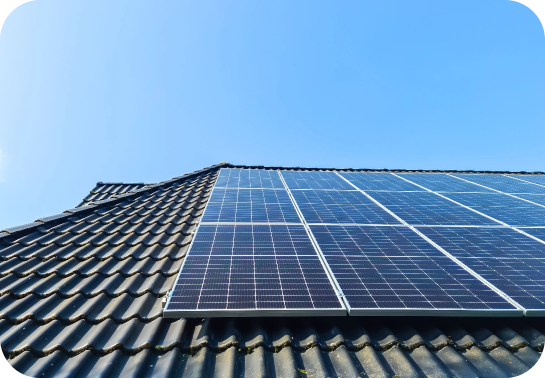
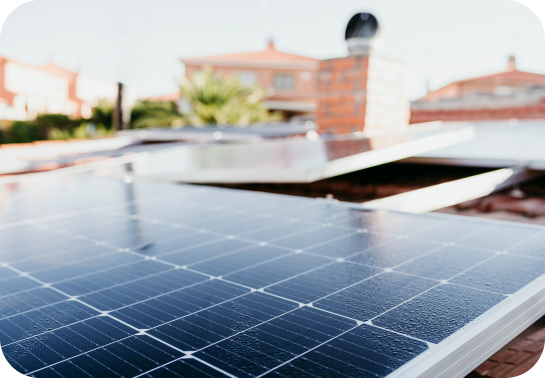
How Much Does a Solar Battery Cost?
The cost of batteries for solar panels can vary widely, and the range of prices depends on a handful of different factors. In general, solar batteries typically cost from $5,000 to over $15,000. These price differences are tied to — among other things — differences in the batteries’ capacities, the type of battery being used, and the manufacturer who produced it. You can use the Axia Solar Calculator to get a quick look at home much a Qcells Battery could cost for your home.
While battery prices can seem steep, it’s important to remember that the cost of solar batteries (in addition to the cost of solar panels) has been steadily falling in the past several years, greatly owing to the technological advancements the industry has made recently, as well as increasing demand for the tech itself.
Factors That Determine Solar Battery Cost
Capacity
One of the biggest factors that drive solar battery cost is the battery’s capacity. Simply put, a battery’s capacity is the total amount of energy that can be stored within the battery. This measurement is most often expressed in kilowatt-hours (kWh). Batteries that have a higher capacity will usually be more expensive when all other things are equal. To figure out what capacity of solar battery your home requires, you’ll need to consider a few different factors, including your normal energy usage, the number of appliances you’re hoping to power, and the period of time you hope to power those appliances when you have little or no sunlight.
Type of Battery
Solar batteries come in a variety of different types, each of which has its own pros and cons. These different battery types, from lead-acid to lithium-ion, rely on different chemical reactions and use different materials to store energy, which is a determining factor in answering the question, “How much are solar batteries worth?” For instance, lead-acid batteries are usually more affordable than other battery types in terms of upfront costs, but they have shorter lifespans and more maintenance requirements relative to lithium-ion batteries, which have a higher upfront cost but much longer lifespans.
Solar Battery Manufacturer
Because of their brand reputation, as well as research and development and quality assurance, solar batteries produced by more well-known and reputable manufacturers will tend to cost more. Knowing this, it might be tempting to turn to a lesser-known brand for a solar battery that costs less. This can be a misstep, as these lesser brands can lack reliability and performance, which will cost you more in the long term.
Number of Batteries Installed
Your energy needs and storage requirements will determine how many batteries you will need to adequately power your home. Factors such as the size of your home, the amount of solar panels your home has, and the number of appliances you hope to run from battery power will determine the amount of energy storage you will need. If large enough, your energy needs may necessitate more than one solar battery, which will change the cost of solar power batteries in your use case.
Labor Costs
How much is a solar battery to install in your home? In addition to the size and complexity of your solar installation, the specific energy requirements your home has will influence the cost of labor to install your solar batteries. If you’re considering purchasing solar batteries, you’ll want to consult a professional like the solar experts at Axia to accurately estimate the cost of labor for your specific installation.
Incentives & Rebates
Some state and local governments offer incentives and rebates to help homeowners offset the cost of solar batteries. With various incentives in the form of tax credits, government subsidies and grants, or even incentives offered by local utility companies, it’s likely that you can find a program that can help minimize your solar battery cost.
Additional Solar Battery Costs to Consider
Upfront cost of solar batteries is important to keep in mind, but there are also other vital costs that homeowners should consider when it comes to the long-term use of solar batteries.
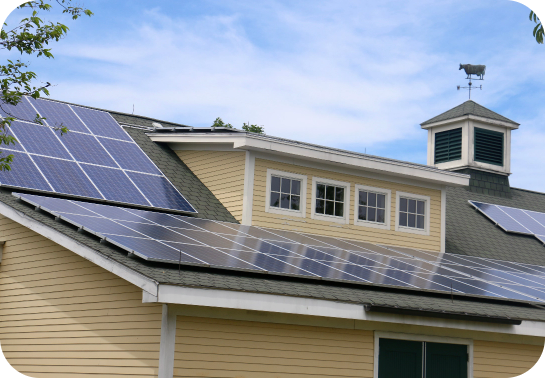
Maintenance
Electrical systems require regular maintenance, and solar batteries are no exception. As a homeowner, you want to have periodic maintenance to ensure performance and longevity, including inspections, cleaning, and any necessary replacements or repairs of the battery’s components, connectors, or cables.
Electrical Wiring
Installing a solar battery can sometimes require you to make upgrades or modifications to the electrical wiring in your home. Consult with a certified and experienced electrician to see what wiring changes, if any, need to happen in your home to accommodate a solar battery installation, and determine how this will factor into your overall budget.
Solar Inverter
The solar panel creates DC current, which will need to pass through an inverter to create an AC current that can charge the solar battery. Then, the battery itself will discharge DC current, which will also need to be inverted to the AC currents that are usable by your home’s appliances. If you’re considering the cost of solar batteries, you’ll want to factor inverters into your overall budget.
Critical Load Panel
While most electrical appliances are great to have, not all of them are essential in an emergency. In the event of a power outage, a critical load panel will allow you to use the stored energy judiciously, powering only the critical appliances to avoid running down the battery too quickly in a situation where you don’t know how long you’ll be without power. Consider the cost of a critical load panel if you are in the market for a solar battery.
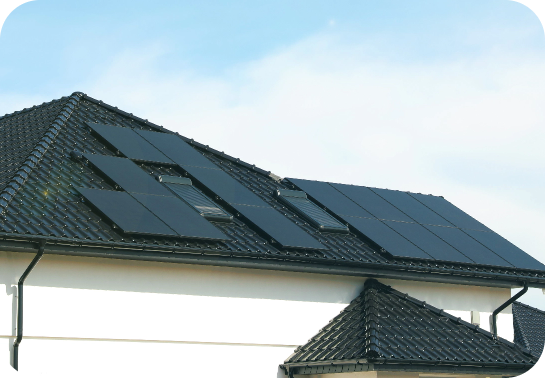
When Will You Break Even on a Solar Battery?
When you invest in a home solar system, the “payback period” is the amount of time it will take for your energy savings to make up for the initial cost of the system itself, making the whole endeavor “worth it” from a financial perspective. While the payback period is usually considered based on the system as a whole, you can easily make the same considerations and calculations based on the individual investment of a solar battery.
Many different factors influence how long your payback period will be, from the cost of solar batteries and the current rate for electricity from the grid to your personal energy usage and external help like government incentives.
To give yourself a rough estimate of your payback period, try using this formula:
Payback Period = Cost of Solar Battery/Annual Energy Savings
Will Solar Batteries Become Less Expensive Over Time?
As stated earlier, the cost of solar power batteries has been on the decline in the past several years, thanks to advances in solar and battery tech. The growing demand for these technologies has led manufacturers to invest considerably in their research and development, making their production more efficient and driving considerable cost reductions. These advances, paired with government programs and incentives, have and are expected to continue lowering the cost of solar batteries over time.
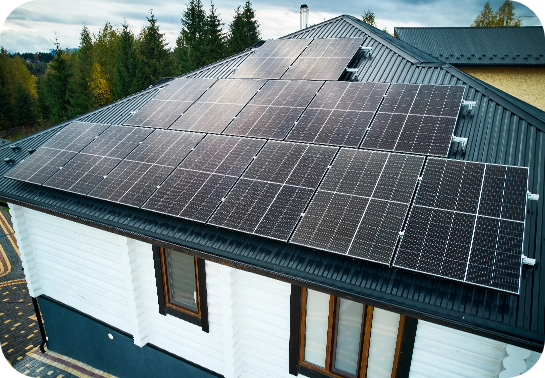
Are Solar Batteries Worth the Extra Cost?
When deciding whether or not to invest in solar batteries, your choice will depend on your specific energy needs, circumstances, and personal goals for the home you want to have. Though a solar battery does come with an upfront cost, solar battery users will see many benefits that make the investment worth it.
Energy Independence
Solar batteries give you the ability to store the excess energy that your solar panels generate. That means less reliance on the grid and a source of backup power during outages.
Time-of-Use Optimization
Some locations are subject to “time-of-use” electricity rates, meaning that the cost of energy from the grid can be different depending on the time of day. By using solar batteries, you can shift your energy usage to off-peak times, lowering your utility rates and maximizing your savings.
Environmental Benefits
Storing the solar energy you generate allows you to become less reliant on fossil fuels, which contributes to a clean, sustainable future.
Get Axia Solar Batteries
Axia Solar offers high-quality solar batteries that maximize your capacity for energy storage and boost your energy efficiency. Our solar experts can assess your personal energy needs to help you design a customized solar energy solution for your home. Learn more about Axia solar batteries below.